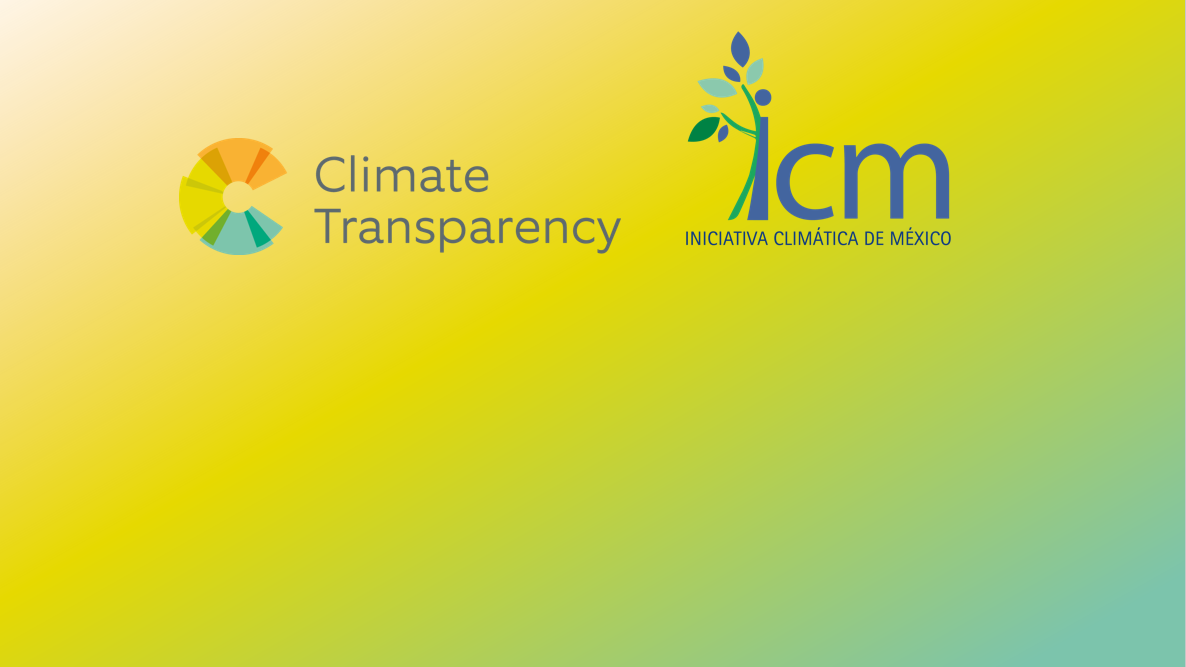Mexico City, 25 October 2017; Climate Transparency’s partner Jorge Villareal, Iniciativa Climática de México, presented the Brown to Green Report 2017 at Mexico’s Ministry of Foreign Affairs (SRE). The presentation focused on Mexico’s climate performance compared to its G20 peers. Juan Carlos Arredondo Brun, Director of the Climate Change Division of the Ministry of Environment and Natural Resources (SERMANAT) and Norma Munguia, Director of Global Affairs, Ministry of Foreign Affairs, gave their view on Mexico’s transition towards a low-carbon, resilient economy. Around 25 experts from civil society joined the discussions.
According to the Brown to Green Report, Mexico’s share and growth rates of renewable energy remain below the G20 average, despite significantly increasing the amount of renewable energy capacity installed in 2016 compared to previous years. Overall, Mexico receives a positive policy performance rating from national experts, but they criticise its mitigation strategy for 2050 for not containing an implementation roadmap, and the fact that it does not provide clear measures and actions of how to comply with the emission reduction targets set in its Climate Change Law. Mexico has recently improved its support policy for renewable energy. Its investment attractiveness for renewables is in the middle range of the G20 due to its low market absorption capacity and general investment conditions. A carbon tax was introduced in 2014, which applies to fossil fuels but exempts natural gas. In 2016, it announced plans to establish a national carbon market in 2018, and expressed a strong interest in a North American carbon market. However, it continues to subsidise its oil and gas industry through tax breaks and budgetary support.
Highlights of the event discussions include:
- Absolute decoupling of emissions in the energy sector in Mexico: Mexico has reduced its emissions in the energy sector mainly through the substitution of fuel oil by natural gas. However, future predictions show that in 2030 Mexico will emit almost as much as it does now if the development of its economy is based on natural gas. An absolute decoupling of GHG emissions from the electricity sector requires an increase of renewable energy within the energy matrix.
- Translation and incorporation of the Paris Agreement into the Mexican law: So far the Paris Agreement and the NDC are only voluntary pledges and although they are recognised by the International Community, there is a need to legislate the outcome in order to secure Mexico’s pledges beyond political will and implementation limitations.
- Adoption of the Paris rulebook: Mexico pledged to reduce its emissions by 30% in 2020 based on the emission levels of the year 2000. Despite emission reductions, in 2016 only a sixth of the overall necessary emission reduction has been achieved. This means that Mexico will have to increase its ambition rapidly to comply with its own targets, let alone the Paris roadmap.
- Forestry sector: Although Mexico shows no signs of deforestation and it is likely that it will comply with the 2030 0% deforestation goal, there is a need to assess the state and quality of forests in Mexico.
- Production and consumption: While the Brown to Green report assesses the production side of the economy, it is important to incorporate indicators on consumption patterns.
- Electricity auctions: During 2016, Mexico undertook two electrify auctions and in both cases solar and wind technologies achieved most of the allocated prices. The first with an average cost per MW/h of 43 USD and the second ranking lower with a 33$/MWh. This shows that in terms of competitiveness, renewable energies are already competitive in the national market, however the lack of public and private support for its development and penetration has been the consequence of its delayed incorporation into the energy matrix at a larger scale and a faster rate.









